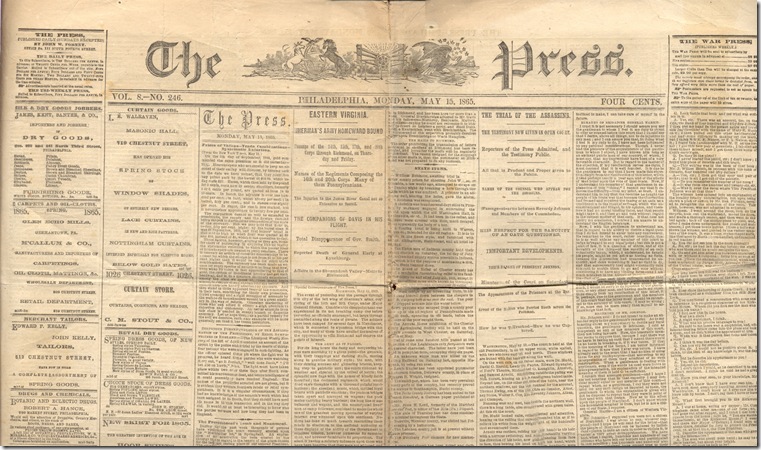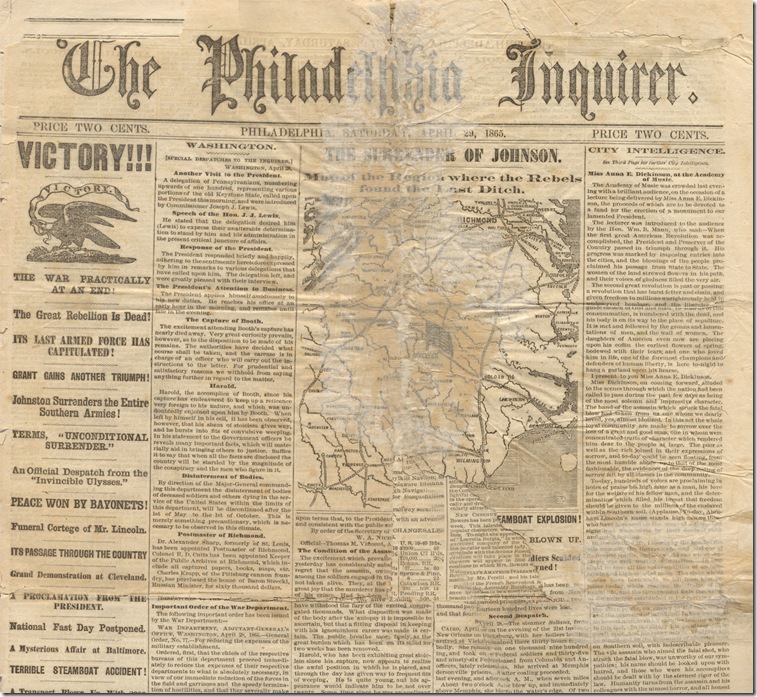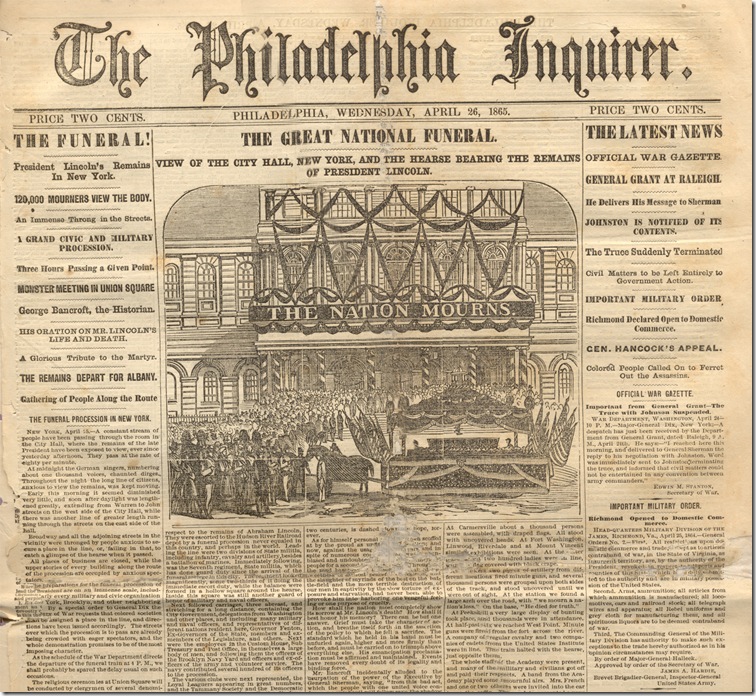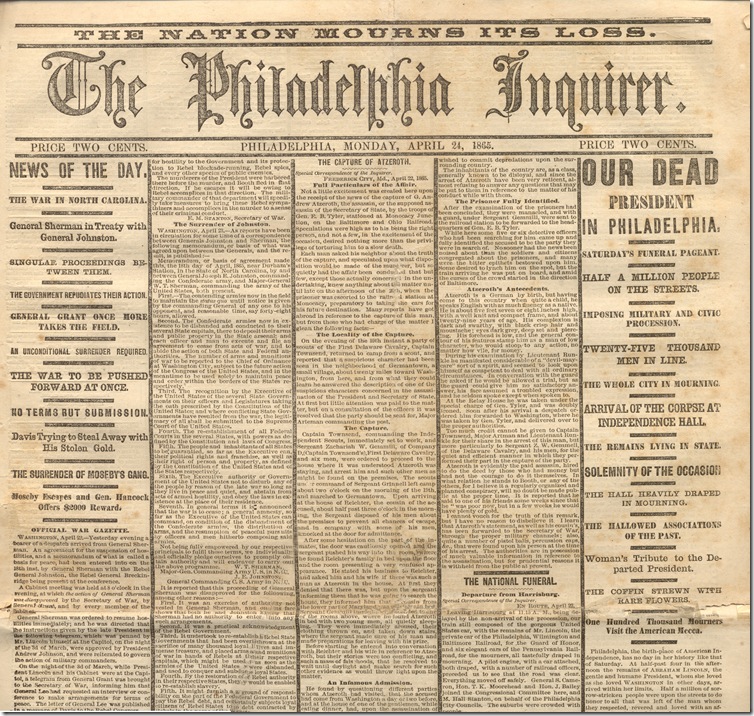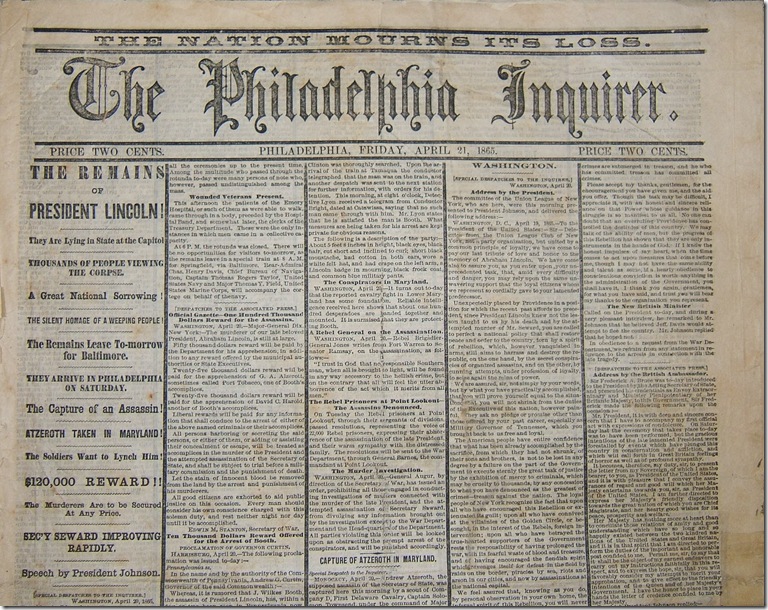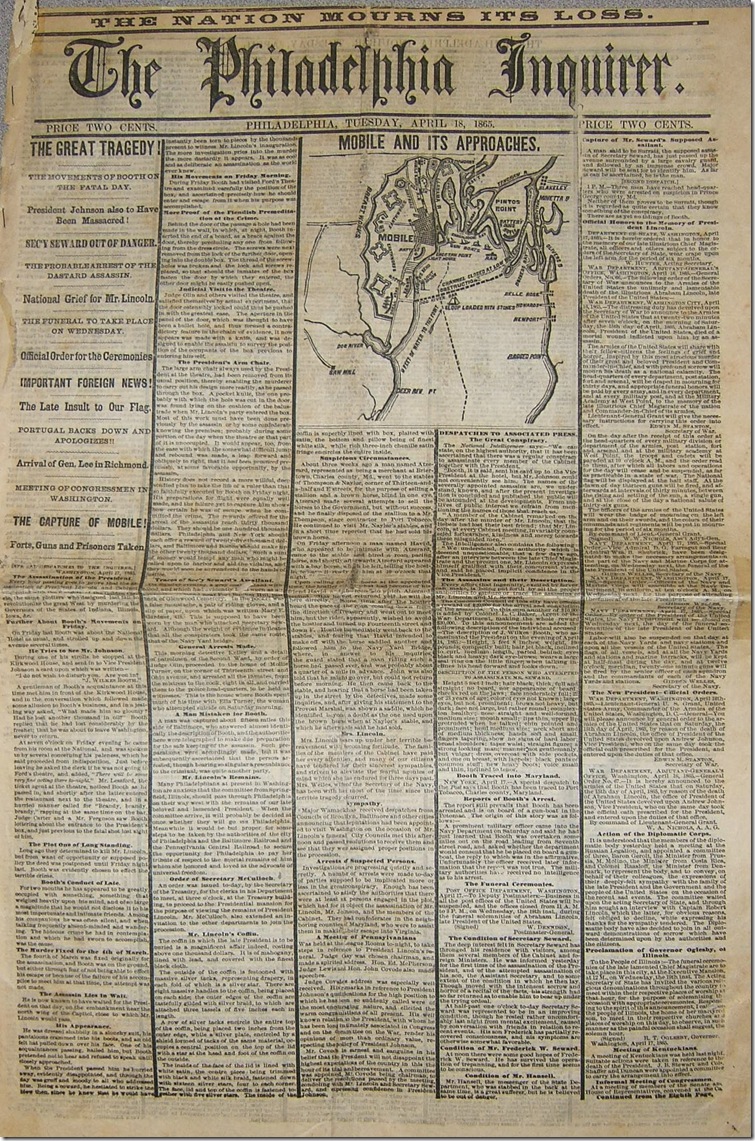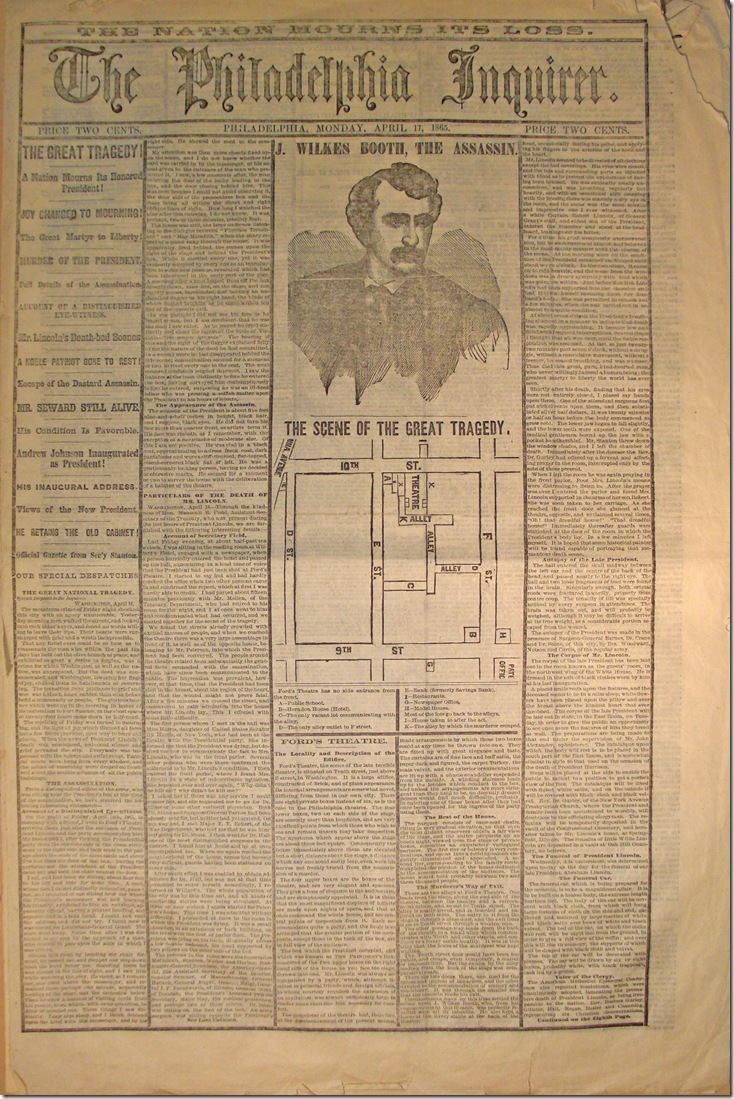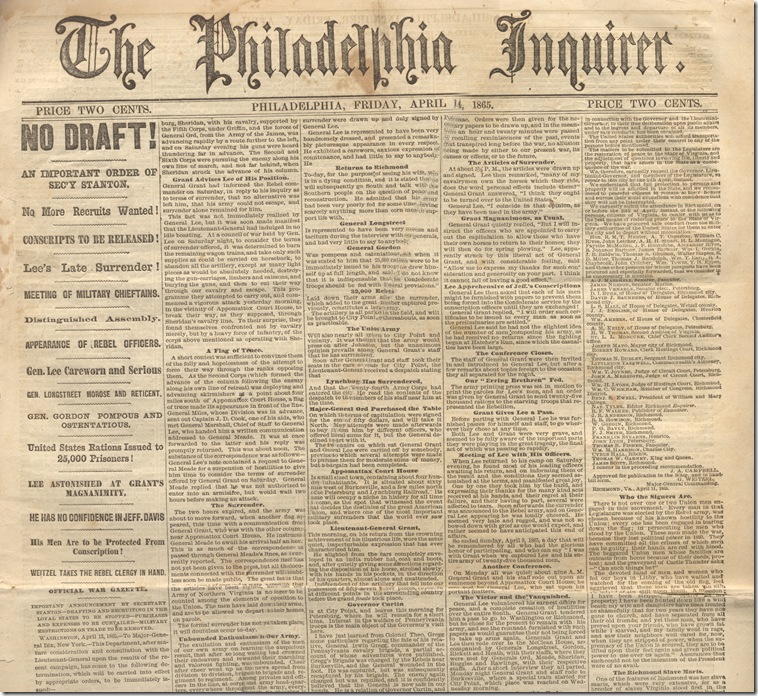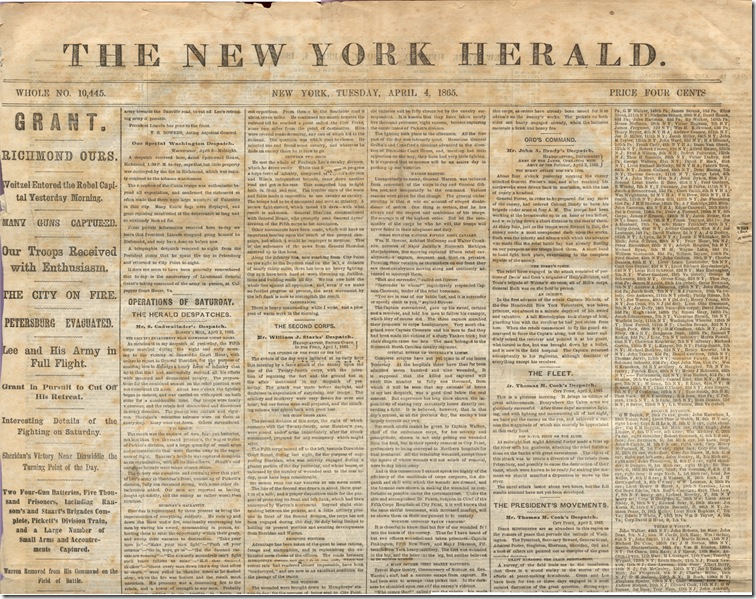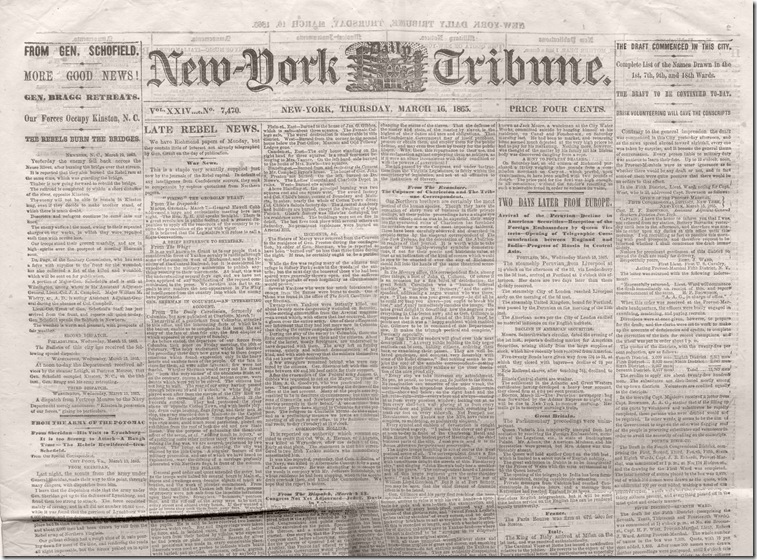Transcript (excerpt):
Page 1, Upper Half
[Special Correspondence of The Press]
Richmond, May 12, 1865.
The event yesterday was the passage through this city of the left wing of Sherman’s army, consisting of the 14th and 20th Corps, under Major General Slocum. Considerable disappointment was experienced in its not breaking camp day before yesterday, as officially announced, but large throngs assembled along the route of the parade. The soldiers have been camped for several days in Manchester, which is connected by a pontoon bridge with this city and many of them have availed themselves of the opportunity to visit Richmond and observe the points of interest.
Citation:Philadelphia Press. Philadelphia, 15 May 1865. Gift of Steven and Susan Raab. AN .P5447
